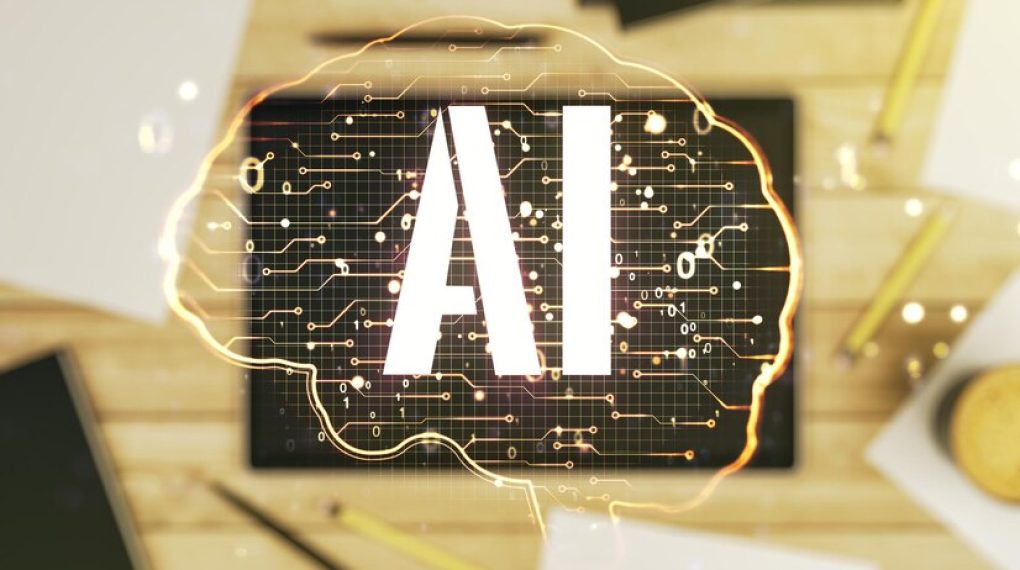
Artificial intelligence (AI) is the talk of the town at the moment, thanks to the launch of public-facing platforms like OpenAI’s ChatGPT, which launched in November. It’s worthy of the chatter: AI is transforming the way we live, work, and interact with technology, and it’s already impacting the cybersecurity world.
Here, the experts at ESET explore the role of AI in cybersecurity, and how businesses can best protect themselves as the landscape evolves.
4 Main Cybersecurity Challenges Posed By AI
While machine learning isn’t yet mainstream, we’ve already identified a few ways it might throw a spanner in the works when it comes to AI and cybersecurity.
1. Issues With AI-Led Algorithms

Algorithms aren’t perfect. For example, if you look at social media, the more content you consume that aligns with your values, the more you’ll be served similar content. In this way, social media helps to reinforce any biases an audience may have. AI-led algorithms present the same challenge. AI continuously learns, and it does so based on the topics and questions users ask about. There’s no guarantee AI platforms will be exposed to the diverse set of information sources it needs to develop a complete, objective view. As such, there’s a risk that AI platforms may increase algorithmic bias and facilitate the spread of false information. AI can be an incredible resource, but it’s important for people to rely on their human intelligence to assess the validity of the information stemming from machine learning.
2. Potential For Identity Theft And Impersonation
AI can process huge amounts of data and perform tasks quickly and anonymously. Thanks to this speed and efficiency, cybercriminals may turn to AI for fraudulent purposes. For instance, AI systems could be manipulated to impersonate a real person. They can be used to create fake online profiles or accounts, generate images or videos that appear to be authentic, or generate copy that mirrors a person’s style, tone or language patterns. For instance, an AI system might be able to craft a social media post or email that sounds like it was written by a real, trustworthy person. Identity theft is also a concern with AI, given how much information some people share online — this could be easily consolidated by AI.
3. Ability To Generate Mass Phishing Emails
Phishing scams have been a persistent problem, especially post-pandemic, and we may see AI contributing to this cyber threat in the near future. Language-based AI systems aren’t new, but ChatGPT is the most sophisticated iteration we’ve seen. It’s trained to communicate with perfect spelling, grammar, and tense usage, and the lack of language-related mistakes could prove to be a game-changer for cybercriminals around the world. Until now, the most common red flags for phishing emails included misspellings, odd phrasing, and poor grammar — if users spotted these errors, they might suspect a scam. AI systems have the ability to create convincing, eloquent phishing scams in seconds, which is a valid concern for cybersecurity professionals.
4. May Assist Cybercriminals With Certain Activities
Systems like ChatGPT can be manipulated, and whether this is a good or bad thing comes down to the person using AI. For example, bad actors could dupe machine learning systems to write malicious code or create malware strains. AI platforms do have built-in guardrails to help prevent this, but it may be possible for hackers to trick AI. On a similar note, cybercriminals could harness AI to collect data and observe user behavior, and then use that information to launch an attack.
2 Ways AI Could Boost Cybersecurity
Like with any technology, how you use it matters. With cyberattacks on the rise, there are a few ways Artificial intelligence and cybersecurity could work together to improve our safety online.
1. Offers Better Hacker And Fraud Detection

AI can process a lot of data at once, helping to identify patterns and analyze relationships — for example, between malicious files and suspicious IP addresses. It can also perform tasks on the user’s behalf. Combined, these abilities mean AI could be used to combat cyber threats such as fraud. It could help to automate processes, including identifying threats. It can do that in a scalable way, freeing up humans to take on important cybersecurity-related tasks, like incident response.
2. Speeds Up Time-Consuming Tasks
AI could help cybersecurity professionals do some of the legwork involved in their roles. In other words, it could function as an advanced research and administrative assistant. For example, it could provide risk analysis, cutting down the amount of time security analysts need to act on threats. It can help to identify false positives, which is a challenge for human analysts when it comes to threat detection. AI could also assist with repetitive tasks such as generating reports, as well as setting up email filters and malware identification tools. Because of their natural language processing capabilities, AI systems could also help with writing security policies and cybersecurity training documents.
Focus On Evolving Along With AI
This is just a snapshot of the challenges and advantages presented by AI and machine learning systems. Understanding the latest trends and developments in machine learning and cybersecurity will help business owners better position themselves to stay on top of emerging threats and protect their sensitive data.
Interested in added protection and peace of mind? As AI continues to evolve, it’s worth investing in software that keeps pace with machine learning, such as ESET’s security products for small and mid-size businesses.
Read Also:






